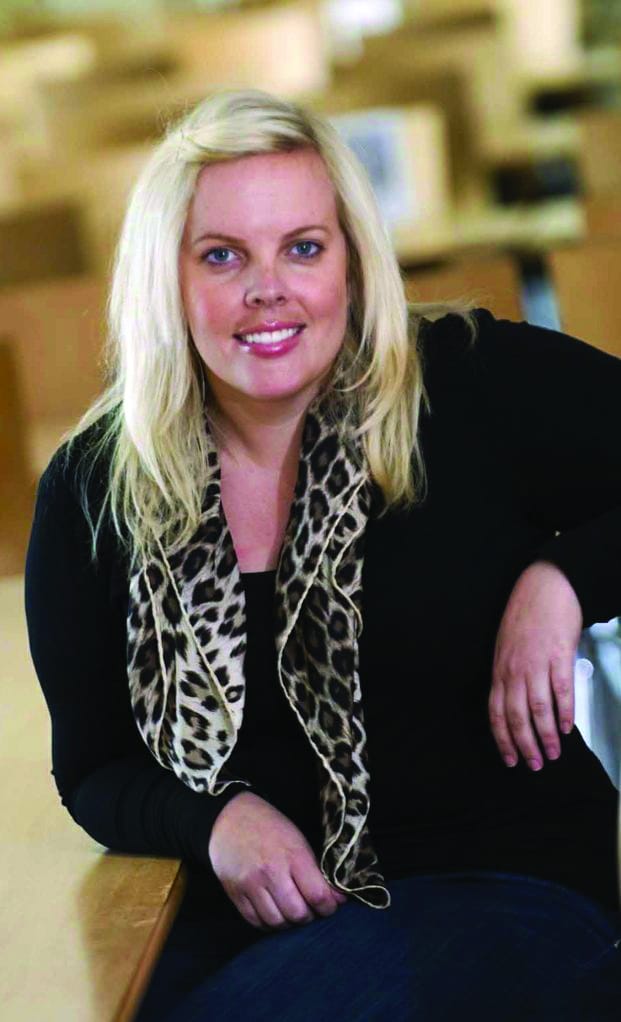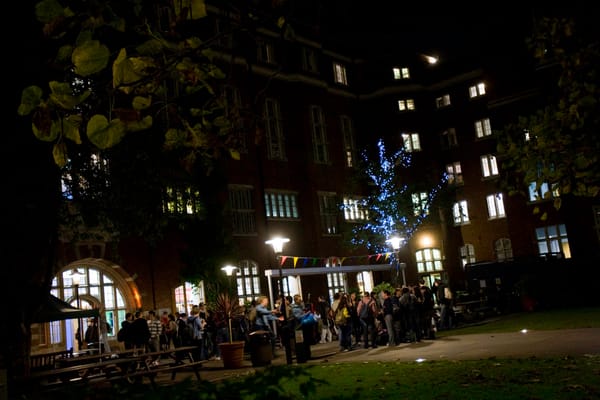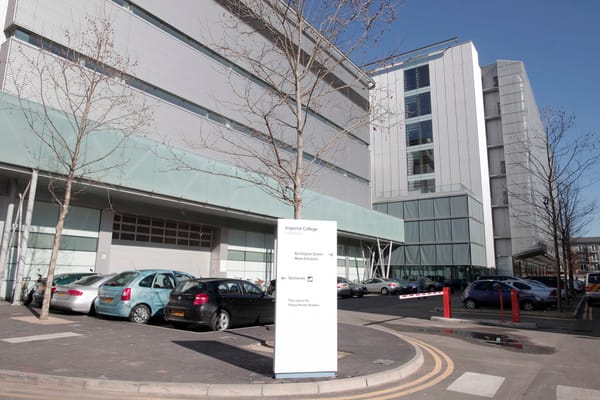All about body image
Dr. Phillippa Diedrichs, an expert in Body Image, gives a talk next week at Imperial. Deputy President (Welfare) Nicolas Massie interviews her for those who won’t be able to make it

Nicolas: Can you tell me little bit about yourself? Phillippa: I’m senior research fellow at the centre for appearance research at UWE and I’m a research psychologist who specialises in body image and eating disorder prevention.
N: Tell me about the type of research that you do. P: I do a range of applied research. It’s all about research which aims to have a meaningful change rather than research for research’s sake. I do a lot of different projects. At the moment primarily my research is focusing on evaluating body image and eating disorder prevention programmes in school and in universities, one of which is the SUCCEED body image programme. And I also do a lot of work looking at the impact of media images and advertising on people’s body image and a lot of advocacy work as well. I am heavily involved with the Campaign for Body Confidence, a campaign set up by two liberal democrat MPs, bringing together involved stakeholders to speak in the Commons every couple of months.
N: Can you tell me a bit more about your work with the SUCCEED foundation specifically?P: I’m the head of research for the SUCCEED Body mage programme, which is an evidence based eating disorder prevention programme that originated in the US around ten years ago and was hugely successful in sororities. There are now over eight years of evidence showing success at improving body image and reducing risk factors for eating disorders. It has been brought over to the UK and we are in the process of rolling it out across UK universities, evaluating how effective it is at preventing eating disorders and improving body image. It focuses on women at universities and is a two session interactive programme. The great thing about it is that university students are trained to then deliver the programme to other university students.
N: Do you have any figures on how effective it is compared to traditional therapies? P: Not at this stage in the UK but there is US data that shows it is more effective than alternative interventions.
N: I understand that you are going to be giving a talk at Imperial in two weeks – what would you hope to achieve?P: The talk is part of a campaign. The aim of this campaign is to raise awareness of body image and eating disorders, with a particular focus on body image and how it’s an issue that impacts upon almost everyone and can affect people across all key areas of living including psychological and physical health but also social relationships, and how well people achieve in academic stetting. It’s also to discuss social and cultural influences that affect the way we feel about how we look and some key tips on how people can improve their body image.
N: A lot of people spend a great deal of time thinking about their bodies, what they eat, their exercise regime. Can you tell me when this sort of fixation becomes a problem? P: I think it becomes a problem when it starts to heavily influence how somebody sees themselves and judge their value. If you spend so much time working out in the gym that you can’t finish your university assignments, or have a happy, healthy social life, then that becomes a problem.
N: You said ‘if you can’t live a happy, healthy social life’ it becomes a problem. Would you say it becomes a mental health problem? P: Anorexia and bulimia are diagnosable mental health conditions. Body image concerns are when people negatively evaluate how they feel about their own bodies and their appearance, whether that’s how they look or how they function. That’s not a clinical disorder but there is lots of research over the past twenty years that shows that negative body image is a significant risk factor for anxiety and depression, and for unhealthy relationships with food and exercise.
N: You said it isn’t a medical condition but are there any sorts of treatments or strategies that those who want to improve their body image could employ? P: There are lots of effective programmes out there, one of which is the SUCCEED body image programme which has a very strong evidence base and a good success rate in the United States with improving body image among young women. What individuals can do is focus on what they like about their bodies, including what it looks like, but also what their bodies can do for them, trying to appreciate the function of their bodies as well as the way they look.
N: When should someone consider one of these programmes? P: This is a varied answer and it depends on who you talk to. Taking part of the SUCCEED body programme has been shown to improve people’s body image as well as their mood. From my perspective I would obviously recommend that everyone take part in the SUCCEED programme, especially considering that over 75% of people are unhappy with the way they look according to the figures that we see in the research. I don’t think there is a critical point anyone needs to reach before they take part in something like that.
N: Would you say that there is a continuum from body image issues to eating disorders and body dysmorphic disorder (BDD)? Would you say that they are connected? P: They are connected but I wouldn’t say there is a continuum. Eating disorders and BDD are very complex illnesses that are determined by a range of factors, biological, social and psychological. Body image issues are a risk factor for certain types of eating disorders but are not the cause. It’s a lot more complex than that. Not everybody who has body image concerns will go on to develop an eating disorder and not everybody with an eating disorder started out with negative body image.
N: Are there any social groups you come across in your line of work? P: There tends to be a lot of focus on adolescents and on women – traditionally body image has been seen as a problem for women and young people but increasingly it is recognised as an issue for everyone. Increasingly we are working with adult men and adolescent boys. Consistently the research shows that men also have body image concerns. There is also research being done with children as young as four years of age and adults as old as 80 years of age. It is an issue across the lifespan for everybody.
N: At Imperial we have a strong gender imbalance – do you see this as an issue and do you see it impacting on body image? P: In terms of it impacting on body image I couldn’t really say. I don’t know of any research that has looked at that directly so it’s a bit of a leap to talk about that in relation to body image.
N: At Imperial we live in a reasonably high stress environment – is there a relation between academic performance pressure and body image? P: There are studies that show people who have a negative body image are less likely to participate in class. There was also a study that showed that students with high body image concerns [performed worse academically] than students who didn’t.
N: The fashion industry is often blamed for people’s obsession with their bodies. Is this fair? P: It’s fair in that the fashion industry has a role to play – I don’t think it’s fair when they are blamed exclusively. I think there are a lot of industries that benefit from reinforcing narrow beauty ideals that contribute to body image concerns. Certainly I would like to see more diversity in the types of people and appearances that they use and represent, and there’s a lot of research, including some that I’ve done, that shows that if advertisements use more diverse and larger size models it has a positive impact on people’s body image. I think there’s a lot of room for improvement but I think it’s important to focus on the positives and we are starting to see initiatives from within the fashion industry which are about promoting diversity in appearance.
N: Do you know of any other cultures where media and the fashion industry don’t have the same impact? P: No, not really. There is some research that shows that with increasing exposure to westernised media there is an increase in body image concerns and disordered eating behaviours. There was a study that looked at body image and disordered eating among adolescent girls in Fiji before and after television was introduced and they found a significant increase afterwards. I don’t know that we would be able to make any significant comparisons with any cultures where the media isn’t an issue. The research focuses on western cultures and the impact of westernised media.
N: Is there an ideal body size? P: I’d say there is an ideal body size that is unique for every individual and that is probably what I would call the ‘healthy ideal’, when they are at a body size that is comfortable to them and when they have a healthy relationship with food and exercise.
N: You’ve mentioned men a couple of times – we have a lot of men at Imperial. I wonder how body image issues in men compare to body image issues in women. P: It’s difficult to make direct comparisons – most of the research focuses on one or the other, but there is an increasing amount of focus on men. We did some research in collaboration with the SUCCEED foundation that was focused on body image in adult men in the UK. What we found is that men are concerned with body image and that it impacts on different areas in their lives. It’s really hard to make clear comparisons with women, and it has traditionally been seen as a women’s issue, but the study that we did also looked at how men talk about their appearance with other men, and how often they do talk about it, and 80% of men said they regularly engage in conversations that focus on appearance and reinforce their own beauty ideas. The vast majority of men said they wished they looked different to the way they did, with a heavy focus on muscularity, hair and height.
N: What impact would you say men can have on women’s body image and is there anything men can look out for and try to do differently? P: It’s not so much what men can do to women – it’s what everyone can do. One thing that everybody can do is not engage in ‘body-talk’ or ‘fat-talk’, which is commenting on another person’s body weight and shape whether that’s complimentary or in a negative way because what that subtly does is reinforce that how we all look is important, and people value that.
If you have any questions or would like to get involved with the SUCCEED programme but can’t come to the talk on Monday 19 March at 12:30-13:30 in SAFB 121 then get in touch with dpwelfare@imperial.ac.uk









